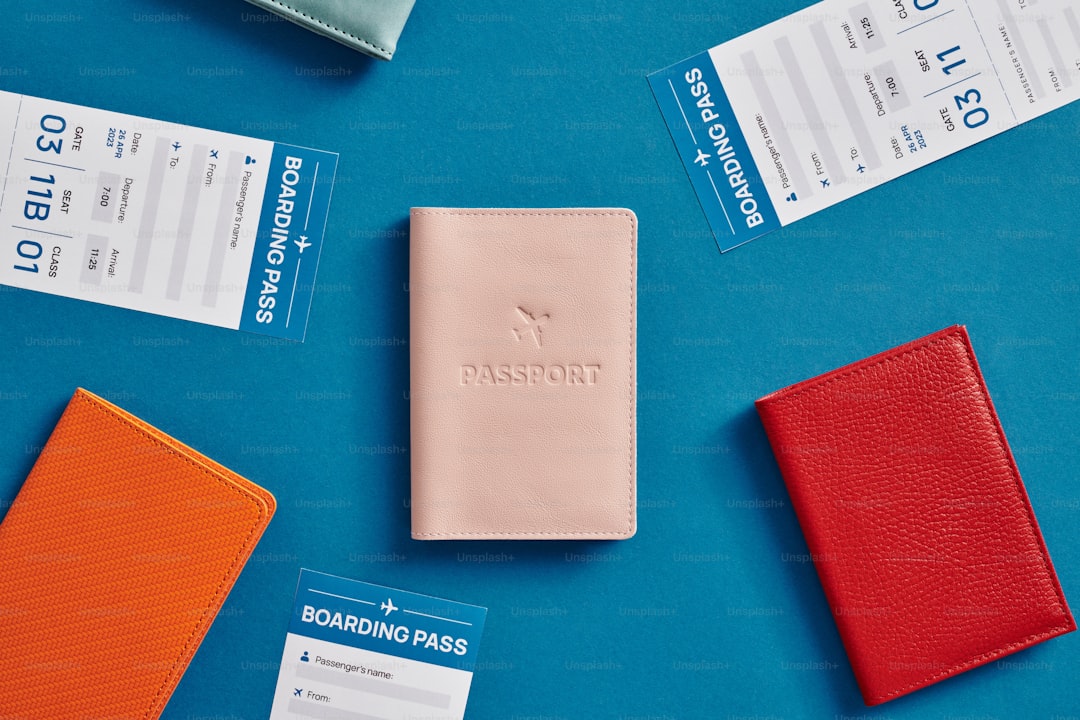Your Complete Bali Visa Guide for Digital Nomads

Introduction
Bali has become a magnet for digital nomads who are looking for a tropical backdrop, reliable internet, and a vibrant community of creators. The island’s reputation as a “work‑from‑paradise” is backed by a growing ecosystem of coworking spaces, affordable accommodation, and a lifestyle that balances productivity with relaxation. However, before you can set up your laptop on a beachfront café or a mountain‑view villa, you need to sort out the visa that lets you stay legally while you work remotely.
This guide walks you through every aspect of the Bali visa process for digital nomads. From the different visa categories that are available, to step‑by‑step instructions on how to apply, to practical tips on extending your stay, you’ll find everything you need to know in one place. By the end of this article you will be able to decide which visa suits your situation, gather the right documents, and navigate the Indonesian immigration system with confidence.
Why a Dedicated Visa Matters
Working from Bali on a tourist visa is possible, but it comes with limitations. Tourist visas are typically short‑term, require frequent renewals, and do not grant the freedom to stay for the length of a long‑term project. A dedicated visa for digital nomads provides:
- A longer stay period (up to 12 months in many cases)
- The ability to exit and re‑enter Indonesia without losing your visa status
- A clear legal framework that protects you in case of an audit or immigration check
- Access to services such as a local tax identification number (if needed)
Having the right visa also signals respect for the host country’s regulations, which helps maintain the positive reputation of the nomad community in Bali.
Overview of Visa Options for Digital Nomads
Indonesia offers several visa pathways that can be adapted to remote work. Below is a concise overview of the most relevant options.
Tourist Visa (Visa on Arrival – VOA)
- Validity: 30 days, extendable once for another 30 days
- Cost: US$35 for the visa, plus extension fees
- Ideal for: Short‑term test trips, travel combined with work
Social‑Cultural Visa (B‑211)
- Validity: 60 days, extendable up to 4 times (total 180 days)
- Cost: US$50 for the visa, extension fees per 30‑day extension
- Ideal for: Longer stays without a formal work contract, cultural exchange, visiting friends or family
Business Visa (B‑211A)
- Validity: 60 days, extendable up to 4 times (total 180 days)
- Cost: Similar to the social‑cultural visa
- Ideal for: Attending meetings, conferences, or short‑term business activities (not full‑time remote work)
Temporary Stay Visa (KITAS) – Remote Worker Visa (new as of 2024)
- Validity: 12 months, renewable
- Cost: Varies, typically US$500‑600 for the visa plus sponsor fees
- Ideal for: Digital nomads who plan to stay a year or more and want a stable legal status
Retirement Visa (KITAP)
- Validity: 1‑5 years, renewable
- Eligibility: Must be 55 years or older, meet income and health requirements
- Ideal for: Long‑term retirees who also engage in remote work (subject to certain restrictions)
Deep Dive: The Remote Worker Visa (KITAS)
The Remote Worker Visa, officially known as the “Digital Nomad Visa” under the Temporary Stay Visa (KITAS) category, is the most suitable option for most nomads who intend to stay in Bali for an extended period while earning income from abroad.
Who Can Apply?
- Individuals who are 18 years or older
- Must have a contract or proof of employment with a company outside Indonesia, or be a self‑employed freelancer with clients abroad
- Minimum monthly income of USD 2,500 (or equivalent in Indonesian Rupiah) – the exact amount may be adjusted by the immigration office
Main Benefits
- Stay for up to 12 months without leaving the country
- Ability to sponsor a spouse and up to two children (subject to additional fees)
- No need for a local sponsor if you meet the income threshold
- Access to a tax identification number (NPWP) if you wish to open a local bank account
Required Documents
- Completed KITAS application form (available on the Indonesian Immigration website)
- Valid passport with at least 18 months remaining before expiration
- Passport‑size photos (white background, 4 × 6 cm)
- Proof of remote work – employment contract, freelance agreements, or invoices for the past three months
- Bank statements showing the required monthly income for the past three months
- Health insurance policy covering Indonesia (minimum US$30 000 coverage)
- Police clearance certificate from your country of residence, dated within the last six months
- Letter of intent stating your purpose of stay in Bali
Application Process
- Gather Documents – Ensure every document is either in English or accompanied by a certified translation.
- Create an Online Account – Register on the Indonesian Ministry of Law and Human Rights immigration portal (e‑visa system).
- Upload Files – Submit the scanned copies of all required documents. The system will assign a tracking number.
- Pay the Fee – Use the online payment gateway to settle the visa processing fee. Keep the receipt.
- Schedule an Appointment – After the system validates your submission, you will receive a link to book an appointment at the nearest immigration office in Bali (typically Denpasar).
- Attend the Interview – Bring the original documents, printed copies of the online submission, and the payment receipt. The officer may ask for clarification on your work arrangement.
- Biometrics & Fingerprints – The immigration office will record your biometric data.
- Await Approval – Processing time ranges from 7 to 14 days. You will receive an email notification once approved.
- Collect KITAS – Return to the immigration office with the notification to collect your KITAS card.
Cost Breakdown
| Item | Approximate Cost (USD) |
|---|---|
| Visa processing fee | 500 |
| Health insurance (annual) | 150‑250 |
| Police clearance (if required) | 30 |
| Translation services (if needed) | 20‑50 |
| Miscellaneous (photos, courier) | 30 |
| Total | ~750‑900 |
Extending the Remote Worker Visa
The KITAS can be renewed for another 12 months. Renewal must be initiated at least 30 days before the expiration date. The same set of documents is required, with updated proof of income and health insurance. The renewal fee is slightly lower (around USD 400) but still requires a local sponsor if you do not meet the higher income threshold.
Step‑by‑Step Guide: Applying for a Social‑Cultural Visa (B‑211)
Many digital nomads start with the Social‑Cultural Visa because it is easier to obtain and can be extended up to six months. While it does not explicitly allow remote work, the Indonesian authorities generally do not enforce strict checks on the nature of online activities as long as you are not employed by an Indonesian company.
Eligibility Checklist
- Have a sponsor in Indonesia – a friend, family member, or an Indonesian organization that can issue a sponsorship letter.
- Intend to stay for cultural, educational, or social purposes (e.g., attending language courses, volunteering).
Documents Required
- Completed visa application form (available at Indonesian embassies)
- Passport with at least six months validity
- Two passport‑size photos
- Sponsorship letter on official letterhead, signed and notarized
- Copy of sponsor’s Indonesian ID (KTP) and passport
- Proof of financial means (bank statement showing at least USD 1,500 for the stay)
- Travel itinerary (flight reservation)
Application Procedure
- Obtain Sponsorship Letter – Ask your Indonesian contact to draft a letter stating the purpose of your visit and confirming they will host you.
- Visit the Nearest Indonesian Embassy or Consulate – Submit the application form, passport, photos, and supporting documents.
- Pay the Visa Fee – The fee is usually around USD 50, payable in cash or by card.
- Wait for Processing – Processing typically takes 5‑7 business days.
- Collect Visa – You will receive a visa sticker in your passport indicating “Social‑Cultural” and the validity period.
Extending the Visa in Bali
- Where to Go: Denpasar Immigration Office (Kantor Imigrasi Denpasar)
- When to Apply: At least 14 days before the current visa expires
- Extension Cost: Approximately USD 30 per 30‑day extension
- Maximum Extensions: Up to four times, for a total stay of 180 days
Practical Tips for a Smooth Visa Experience
Choose the Right Entry Point
- Denpasar (Ngurah Rai) International Airport is the primary gateway for most visa holders.
- If you land at a regional airport (e.g., Lombok or Surabaya), you may need to travel back to Denpasar for certain extensions or KITAS collection.
Keep Copies of Every Document
Create both digital and printed copies of your passport, visa, KITAS card, and supporting documents. Store the digital versions in a secure cloud folder and keep paper copies in a waterproof pouch.
Monitor Visa Expiration Dates
Set calendar reminders a month before each deadline (visa expiry, extension deadline, KITAS renewal). Late renewals can result in fines or forced departure.
Use a Local Agent for Complex Cases
If you are applying for a KITAS, a licensed immigration consultant can expedite the process and help avoid mistakes. Their fees are typically USD 150‑300 but can save weeks of waiting time.
Health Insurance Is Mandatory
All long‑term visas require proof of health insurance that covers COVID‑19 treatment and medical evacuation. International providers such as World Nomads, SafetyWing, or local Indonesian insurers are accepted.
Bank Account Setup
With a KITAS and NPWP (tax ID), you can open a local bank account. This is useful for paying rent, utilities, and receiving client payments. Popular banks include BCA, BNI, and Mandiri.
Tax Considerations
Indonesia has a territorial tax system, meaning you are taxed only on income earned within the country. However, if you stay longer than 183 days in a 12‑month period, you may become a tax resident and be required to file an Indonesian tax return. Consult a tax advisor if you anticipate significant earnings while in Bali.
Living in Bali as a Digital Nomad
Choosing a Base
- Canggu – Known for its surf culture, numerous coworking spaces, and a large expat community.
- Ubud – Ideal for those who prefer a quieter, artistic atmosphere surrounded by rice terraces.
- Seminyak – Offers upscale villas, boutique cafés, and a vibrant nightlife.
- Sanur – Family‑friendly with a laid‑back vibe and easy access to the airport.
Accommodation Options
- Short‑Term Rentals – Airbnb, Vrbo, or local homestays for stays up to three months.
- Monthly Villas – Many property owners offer discounted rates for 30‑day contracts.
- Co‑Living Spaces – Communities like Outpost, Dojo, and Hubud provide furnished rooms, coworking access, and social events.
Connectivity
- Internet Providers – Telkomsel, Indosat, and XL Axiata are the major mobile carriers offering 4G/LTE.
- Fixed Broadband – Providers such as Biznet and MNC Fiber deliver fiber connections in most urban areas.
- Coworking Spaces – Most have high‑speed Wi‑Fi (minimum 50 Mbps) and backup power generators.
Daily Life Essentials
| Need | Recommended Service |
|---|---|
| Transportation | Ride‑hailing apps Gojek and Grab, scooter rentals |
| Groceries | Local markets, supermarkets like Pepito, Carrefour |
| Healthcare | International clinics in Denpasar, Bali International Hospital |
| Banking | BCA, BNI, Mandiri – open an account with passport and KITAS |
| Language | Basic Bahasa Indonesia phrases help; many locals speak English in tourist areas |
Cultural Etiquette
- Dress modestly when visiting temples – cover shoulders and knees.
- Remove shoes before entering homes and certain indoor spaces.
- Offer a small donation when entering a temple, even if you are just passing through.
- Respect the “gotong‑royong” spirit – community cooperation is valued, so be mindful of shared spaces.
Frequently Asked Questions
Can I work for an Indonesian company on a Remote Worker Visa?
No. The Remote Worker Visa is expressly for income earned from abroad. If you wish to be employed by an Indonesian entity, you need a work permit (IMTA) and a different type of KITAS.
What happens if my KITAS expires while I am still in Bali?
You must either renew it before the expiration date or leave Indonesia. Overstaying can result in fines of up to IDR 1 million per day and a possible ban on future entry.
Is it possible to switch from a Tourist Visa to a KITAS without leaving the country?
Generally, you need to apply for the KITAS from outside Indonesia. However, some immigration officers may allow a change of status if you have a valid sponsor and meet all requirements. It is safer to exit and re‑enter with the proper visa.
Do I need a local sponsor for the Remote Worker Visa?
If you meet the minimum monthly income threshold (US$2,500) and provide all required documentation, a local sponsor is not mandatory. If your income is lower, a sponsor can help bridge the gap.
Can I bring my pet to Bali?
Yes, but pets must have an import permit, a health certificate, and be vaccinated against rabies. The process can take several weeks, so plan ahead.
What is the best time of year to apply for a visa?
The immigration offices are less busy during the low tourism season (April‑June and September‑November). Applying during these months often results in shorter processing times.
Checklist: Your Visa Preparation Timeline
| Timeline | Action |
|---|---|
| 2‑3 months before travel | Research visa options, decide on the most suitable one |
| 6‑8 weeks before travel | Gather documents, request police clearance, arrange health insurance |
| 4‑6 weeks before travel | Submit visa application (online or at embassy) |
| 2‑3 weeks before travel | Receive visa approval, book flights, arrange accommodation |
| Arrival in Bali | Register with local authorities if required, obtain KITAS card or extension receipt |
| 1 month after arrival | Open a local bank account, apply for NPWP if needed |
| 30 days before visa expiry | Initiate extension or renewal process |
| 6 months into stay | Review tax residency status, consider long‑term plans |
Final Thoughts
Bali’s allure as a digital nomad haven is more than just sun‑kissed beaches and Instagram‑worthy sunsets. It is a place where a supportive community, reliable infrastructure, and a flexible visa system combine to create an environment where remote work can truly flourish. By understanding the nuances of each visa category, preparing the necessary documentation, and following the step‑by‑step procedures outlined in this guide, you can secure a legal status that lets you focus on what matters most: building your career while enjoying the island’s unique charm.
Remember that visa regulations can evolve, so always verify the latest requirements on the official Indonesian immigration website or through a trusted local agent before you submit any application. With the right preparation, Bali can become not just a vacation spot, but a sustainable base for your digital nomad journey. Safe travels and happy working!
Random Posts

Secrets of High Performing Digital Nomads
Discover the hidden playbook of top digital nomads, how disciplined freedom, a growth oriented identity, and proven systems turn remote life into high performance. Follow concrete steps to thrive wherever you work.
2 months ago

Navigating Legal Requirements When Working Anywhere
Learn how to stay compliant while working from anywhere, master visas, work permits, tax residency and crypto reporting so you can travel freely without legal hassles.
2 months ago

The Ultimate Resource List for Digital Nomads on the Move
Discover the essential apps, books, podcasts and services every digital nomad needs to stay productive on the move, organized by purpose for quick access wherever you work, travel or live.
2 months ago

The Complete Nomad Starter Kit Checklist and Planning Guide
Ready to hit the road? This guide gives you a step-by-step checklist and planning roadmap for a nomadic life, covering mindset, gear, documents, finances, so you launch confidently and never miss a detail.
1 month ago

Why Flexible Work Environments Are the Key to Remote Success
Flexible work environments turn remote teams into high-performers by adapting to personal needs, project demands and technology, while coworking hubs provide the connectivity and community essential for success.
1 week ago
Latest Posts

Essential Software Every Remote Professional Should Use
Master remote work with essential tools: instant messaging like Slack, high definition video calls such as Zoom, and asynchronous voice apps. Streamline communication, stay connected and boost productivity.
1 day ago

Mastering Remote Work Productivity for Digital Nomads and Freelancers
Learn proven habits, tools, and tactics that help digital nomads and freelancers stay focused, deliver quality work, and maintain a sustainable lifestyle while traveling the world.
1 day ago

Tech‑Friendly European Towns Perfect for Remote Living
Discover Europe’s best small towns where fast internet, affordable living and vibrant tech communities let you work remotely while soaking up historic charm, lakeside views or mountain air.
1 day ago